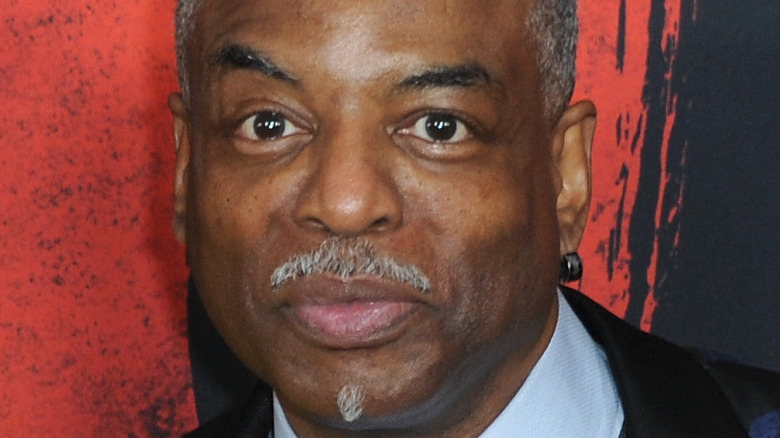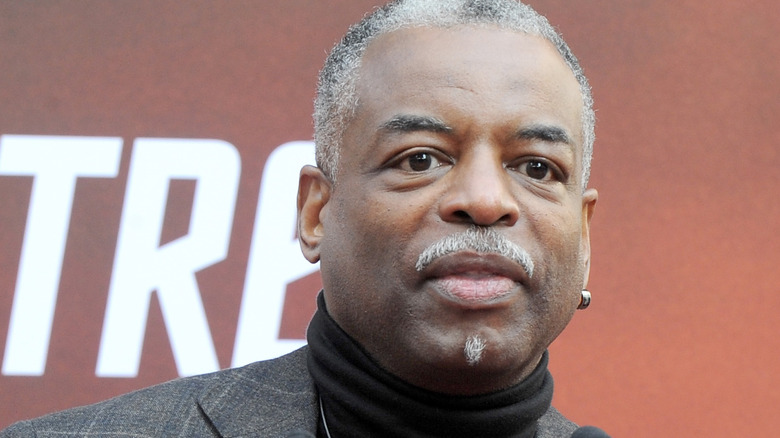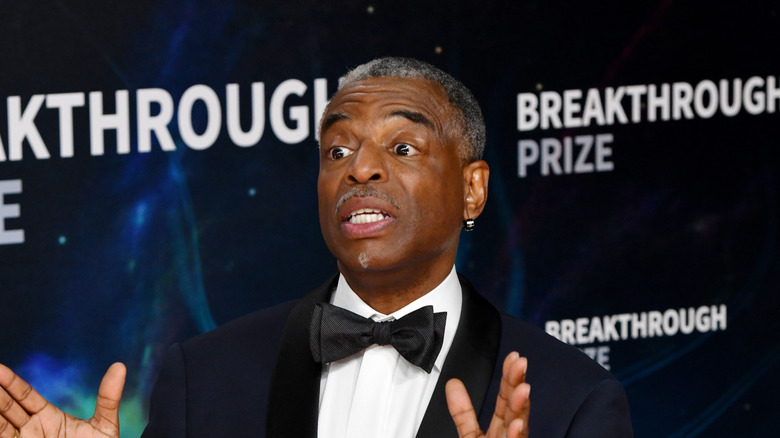The Truth About LeVar Burton's Future On Jeopardy!
As the battle wages on over who will fill the footprints of the late "Jeopardy!" host Alex Trebek nearly a year after his death, new information first reported by TMZ has shed light on the game show's casting process — or lack thereof. As the gossip site reported on August 25, it seems that the show's rotating cast of guest hosts — among which included beloved actor and "Reading Rainbow" star LeVar Burton, NBC anchor Robin Roberts, and actor Mayim Bialik (who ultimately landed the gig for NBC primetime specials) — was more of a sham than not.
The reason? Out of the roster of media personalities who were competing for the role, Bialik and Mike Richards, who served as the executive producer for "Jeopardy!", were the only ones seriously considered from the get-go. Per TMZ, unnamed sources close to the situation disclosed that initially, Bialik was the person Sony, the parent company of the network, wanted for a daytime host, but that her schedule didn't permit her to come on board full time. (Aside from her special guest hosting status, Bialik also stars in the sitcom "Call Me Kat.") It was also why Richards decided to step up to the plate for daytime "Jeopardy!", even though he was one of the candidates with the least name recognition.
But now that Richards has walked away from a hosting role, is it possible Burton could be reconsidered?
LeVar Burton's response to his Jeopardy! snub was gracious
According to TMZ, casting LeVar Burton after Mike Richards' departure from hosting duties on "Jeopardy!" might still be a moot point. The site reported that anonymous sources claimed that Sony executives didn't feel he was right for the job, though it is unclear as to what the exact reasoning is behind their decision. Considering Mayim Bialik has agreed to tape 15 episodes of their daytime show, this also means the company has about three weeks to mull over how to fill the game show's vacancy.
Though Burton had little to say about Richards' exit — which was prompted by the discovery of misogynist, racist, and antisemitic remarks he made on his own podcast, along with a number of lawsuits brought against him for alleged discrimination while working as a producer for "The Price Is Right" — TMZ reported that Burton told friends he was happy to have been given the opportunity to host in the first place. (It could also be due to the fact that Richards has remained a "Jeopardy!" producer for the time being, despite the recent casting controversy.)
Despite the improbability Burton will be reconsidered, why is it an improbability in the first place? Could there be more to this than meets the eye?
Why some think there might be more to the casting process than meets the eye
According to a recent piece published by Salon, the reason LeVar Burton might be out of the running for a "Jeopardy!" hosting gig could have to do with the fact that he's a Black man. Though Burton was not the only person of color to audition for the coveted spot, the fact that Mike Richards was given priority over Burton — even with the popularity and social media campaign behind the actor — was enough to raise eyebrows.
As Salon columnist Melanie McFarland hypothesized, "My guess is they never wanted a person of color. They barely wanted a woman. Mayim Bialik may have clinched the primetime and specials hosting gig ... but from the time that was announced it seemed like a consolation hire." Of course, this theory hasn't been confirmed. However, it's hardly the first time Sony has contended with issues of possible racially fueled bias within the company.
In July, a former Black female employee filed a lawsuit against Sony after alleging that she was fired after submitting a formal complaint about her boss, who made disparaging racist remarks towards her, per CNN. And in 2015, a surfaced Sony memo about the casting of the role of Peter Parker in the new "Spider-Man" reboot revealed the company ruled the character must be white and straight — meaning people of color and anyone perceived to be part of the LGBTQ+ community would not be considered (via Variety).



